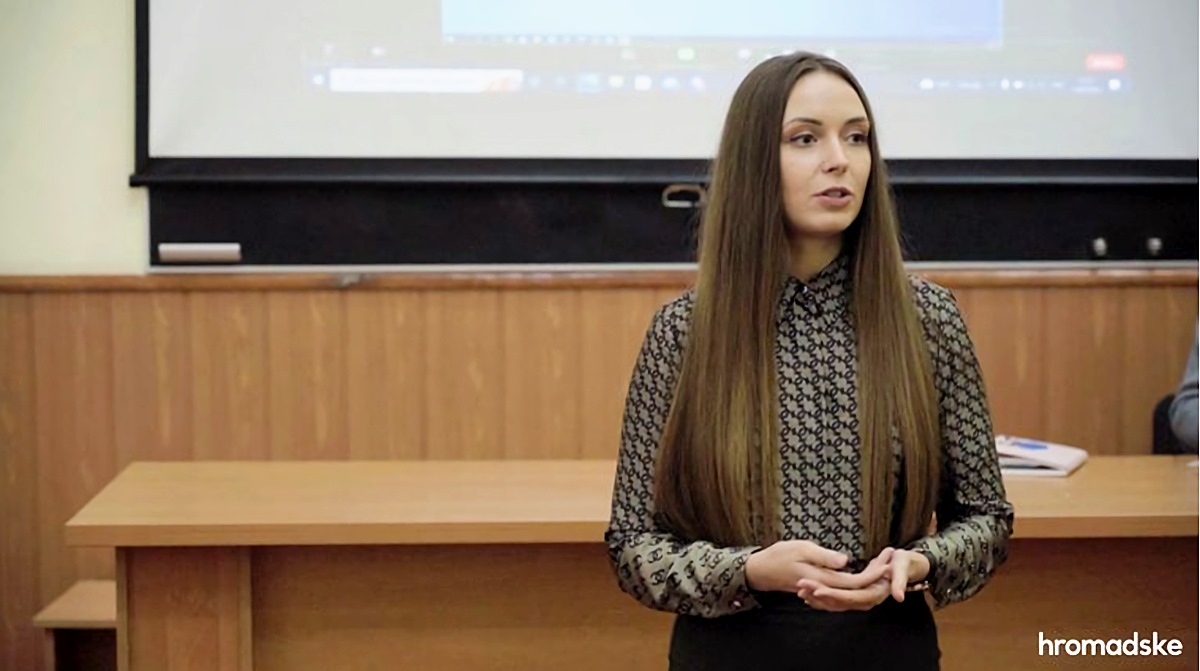In the words of Olha Svitlichna: “I want to make a personal contribution to live in a world free from gender stereotypes and violence”
Date:

Olha Svitlychna, 29, from Mariupol, Ukraine. At the age of 24, she applied and was appointed as a Human Rights Commissioner by the Head of the National Police, where she set up a police hub and an Expert Council on Innovative Ideas. Later, she took a position as Head of the Department of International Cooperation at the Donetsk State University of Internal Affairs. There, she developed a Strategy for Integrating Gender Perspectives into university activities, conducted a study “Women’s Opinion on Domestic Violence in the City of Mariupol”, created a Center for Gender Education and Innovation, and organized an All-Ukrainian Forum for Women’s Leadership. She has also prepared practical recommendations for police officers documenting domestic violence and coordinated the university’s participation in the HeForShe University Tour in five cities across Ukraine in 2021.
![]()
At first, it was difficult [working with police]. My colleagues didn’t take my words seriously. First, I am a woman, and second, I am young. This changed along with the change in management. The new team supported me very much, in particular when I created the Expert Council on Innovative Ideas in the police.
I dreamed about it, probably from the moment I joined the police. I wanted to create a large creative space where police officers would feel like members of the community. I’m pretty sure it’s no longer there. I do not know a place in Mariupol where a shell hasn’t hit.
I conducted training for all 23 regional police units operating at that time. At the end of the training, we would play a game: I would ask questions, and the group was divided into those who answered in the affirmative and those who objected. And so, I asked: ‘Who agrees that a woman can lead a territorial police unit?’ And the vast majority of women and men who attended the training, from all units, believed that she could not. Women often said that they are not ready because the schedule is very busy, managers do not take into account personal time at all.
[In my current position,] my personal challenge is to do everything possible to ensure that international partners know about the history and fate of our university, and see the heroism of our teachers, scientists, and children.
We promote the idea of zero tolerance for violence in the community. A woman may have no place to go, she may be afraid that she won’t be able to provide for herself and her children. Today we need to study these factors in every community. Sometimes it is necessary to build shelters or engage in social entrepreneurship and create jobs for women. Or maybe we just need to deal with the courts in the region.
Like before, I want to make a personal contribution to live in a world free from gender stereotypes and violence. I am faithful to my dream, but the way to achieve it has changed. I used to work more in the community, inside Ukraine. After the full-scale invasion, I realized that we are not just fighting for ourselves — today Ukraine is fighting for the whole world. I devote myself to international activities, studying international experiences that will help us rebuild the country.”
Read the full version of Olha Svitlychna’s story on the Hromadske website. This article was created in collaboration with Hromadske under the UN Women Ukraine project “Decentralization Reforms and Community Security: Transformative Approaches to Gender Equality and Women’s Empowerment in Ukraine” funded by the Danish Government.